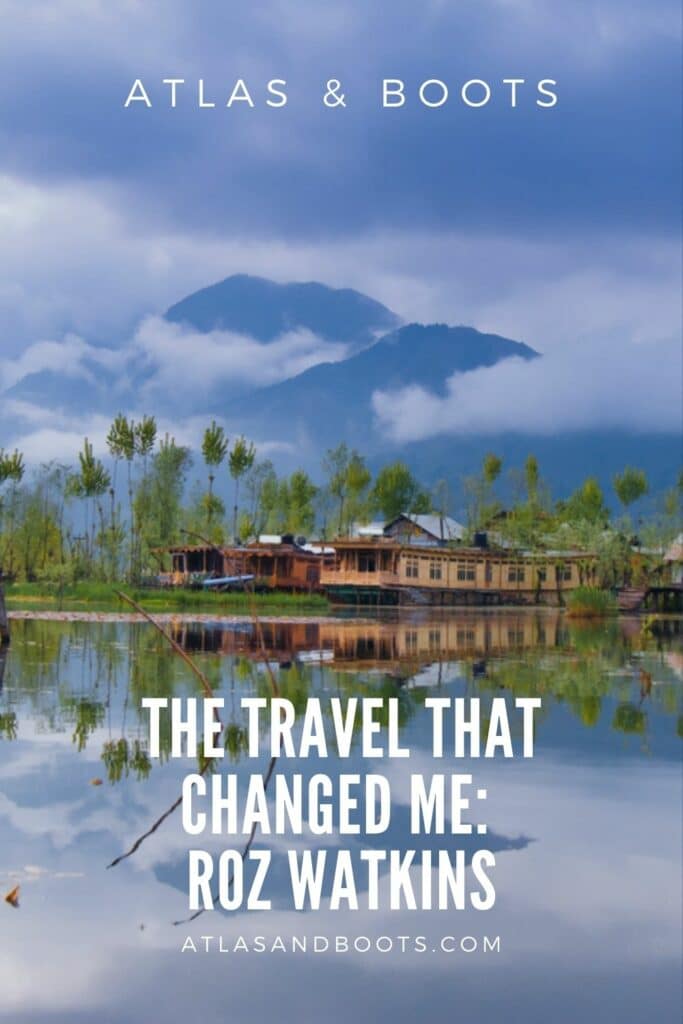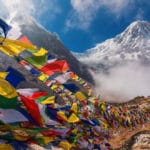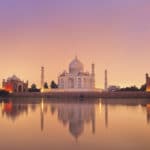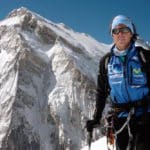From trekking in the hills of Kashmir to evading a rhino in India, author Roz Watkins tells us about the travel that changed her
Roz Watkins is the author of the critically-acclaimed DI Meg Dalton crime series. Set in the Peak District, her novels are known for their extraordinary sense of place. Think moody moors, gnarled forests and creepy local lore. Her protagonist is spirited and sensitive, but what draws me most strongly to Roz’s work is her willingness to venture into the darker corners of society.
In Cut to the Bone, Roz examines the practice of factory farming. Its horrors are writ large in the novel, but the moral heart of the story never hampers the action. In fact, the grisly realities only dial up the tension.
We spoke to Roz about her latest book, why animal rights are important to her, how she’s coping with lockdown and the trip she remembers most fondly.
Your thrillers are set in the Peak District. What makes this a compelling backdrop?
It all started with walking my dog in Shining Cliff woods, a beautiful but creepy ancient woodland, complete with a derelict wire works, an abandoned (and clearly haunted) manor house, and a 2,000-year-old yew tree where a woman used to live with her numerous children (inspiring the nursery rhyme Rock-A-Bye Baby). It felt like the kind of place your dog might find human remains and that was the beginning of my first book.
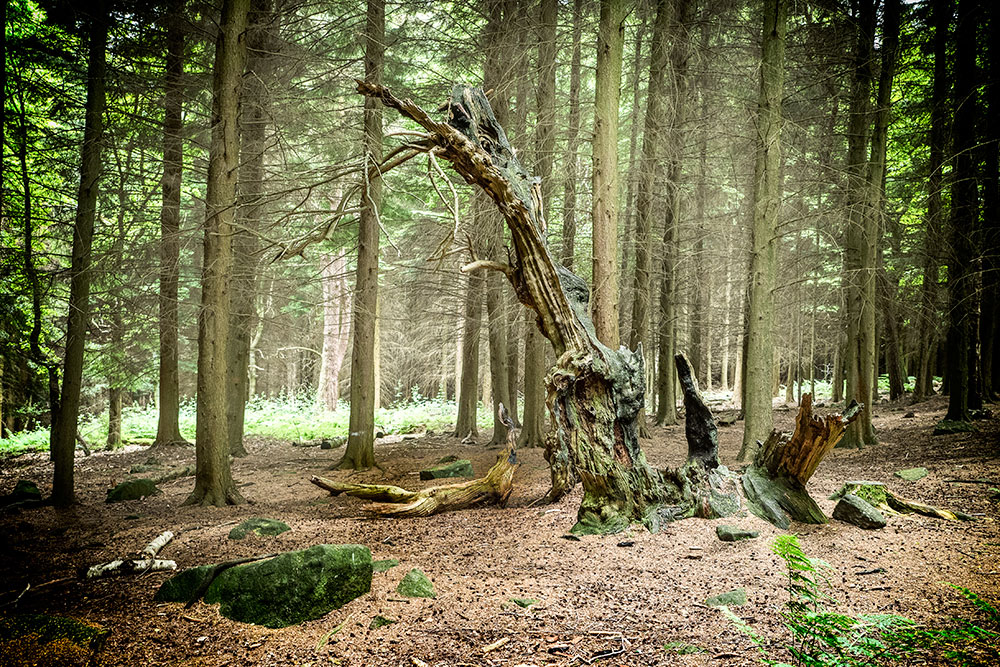
Derbyshire is full of these places – steep cliffs, treacherous quarry pools in startling colours, underground caverns. And the culture is rich with the myths and legends that go with them. We even have a couple of evil mermaids despite being 70 miles from the sea.
As well as an author, you’re a qualified animal trainer. How did that come about?
Around 20 years ago, I decided to take the plunge and get my own horse. I was lucky enough to come across a book called Don’t Shoot the Dog by Karen Pryor, which was about modern animal training techniques using positive reinforcement. I’d been unimpressed with dominance-based training and I was looking for something more scientific and kind.
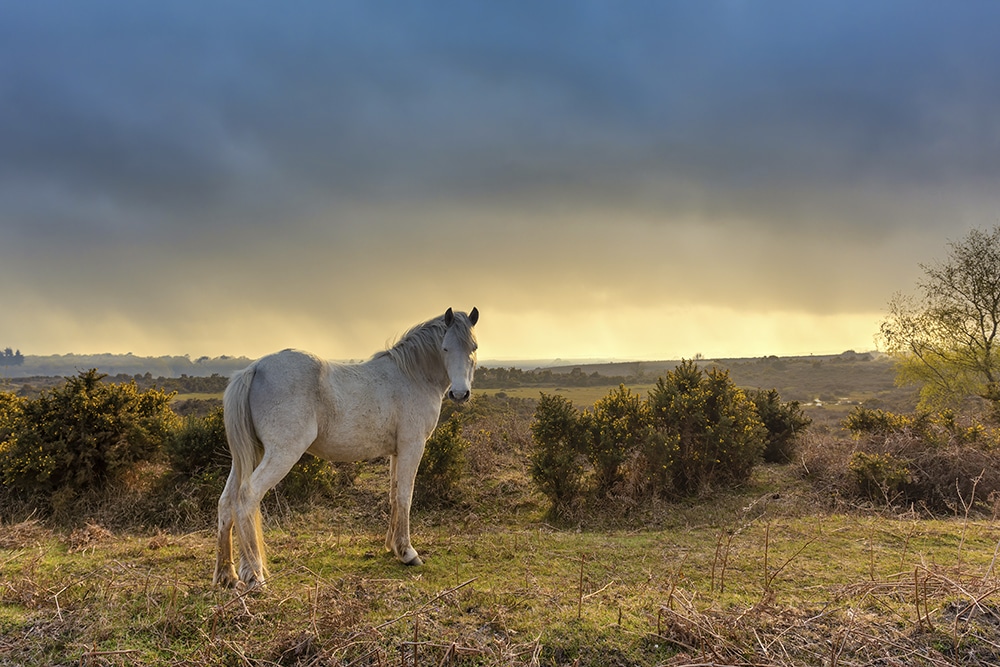
This got me into clicker training and I decided to complete the official trainer programme, which luckily for me involved travelling to some beautiful locations in California and Washington State. It was a fantastic, eye-opening course and it works on all animals, including humans!
The very first short story I wrote (The Cows) had an animal-training (and of course murder) theme, and I managed to incorporate clicker-trained pigs into my most recent book Cut to the Bone. Why be rescued by a man when the job can be done by a pig?
Cut to the Bone is a thriller but also tackles factory farming. Why?
I’ve been horrified by factory farming for as long as I can remember and am particularly concerned about pigs. Many pigs around the world spend their whole lives in crates which don’t even allow them to turn around. Just think about how much fun a few hours on a Ryanair flight is, and imagine it for your whole life.
Although these ‘sow stalls’ are banned in the EU, pigs can still be kept in ‘farrowing crates’ for five weeks when they give birth. These are again tiny crates which prevent them from turning round, or even reaching to nuzzle their young. The mothers usually don’t have any bedding, despite having a strong urge to make a nest for their babies. Their suffering is unimaginable.
Most people simply don’t know this is happening – and in a civilised society it shouldn’t be!
What’s one thing you hope readers will take away from cut to the bone?
If my book prompts a few people to think a little more about the meat they buy, and maybe switch to organic or free range pork, that will make me happy.
Can we ask: how have you coped with lockdown?
I’m aware that I’ve had a very easy time of it compared to many people. We have walks right from our door, through woods and isolated valleys, so it hasn’t been too hard for me. I have great respect for those who’ve coped with lockdown in a city flat.
One downside of living out here is that it’s easy to feel very disconnected from the world of publishing and I have definitely missed book festivals and events this year. But overall I feel very fortunate. I’m very lucky in that I could carry on writing.
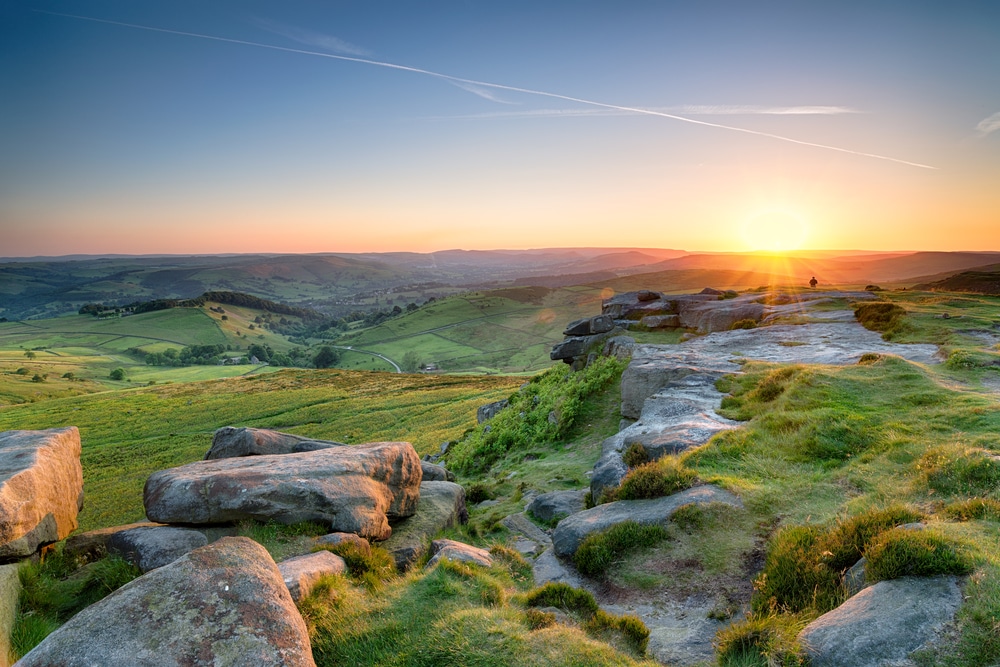
As you might expect from my comments on pigs, I’m frustrated about the lack of conversation around pandemics and animal exploitation. Although this one seems to have come from a wet market, there’s a good chance the next one will come from a factory farm, since they are perfect virus breeding grounds. And the next pandemic may well have a vastly higher death rate. Is it really worth it for cheap meat? Michael Greger’s book How to Survive a Pandemic is interesting on this subject (and rather scary!).
let’s get into the travel that changed you. What region or trip has impacted you most?
This would probably be when I travelled for 14 months in the early nineties, initially with two friends and then, after they went home, with three random men I met in Sydney. (This latter part didn’t impress my parents.) I started in India and ended up in Australia.
We had no mobile phones and we called our parents about once every three months, generally getting the message ‘all lines to England are busy’. We relied on poste restante for mail, arriving in a new place and hoping some of our friends and relatives had written ahead to the address we’d given them in our previous letters. We were out of touch in a way which is almost unthinkable now.
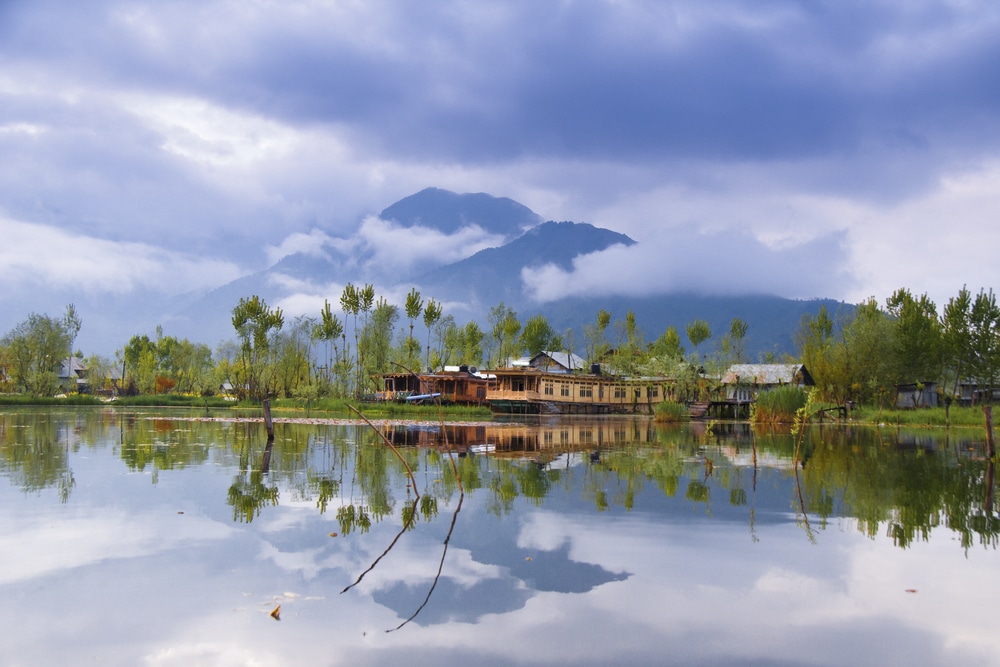
We learnt to appreciate the simple things in life, especially toilets. An unexpected highlight was when we were delayed on a flight to Kashmir (more of this below) and put up in a hotel with actual hot water (our first in three months). I still appreciate modern plumbing to an unusual degree.
We had a strange and dysfunctional relationship with our Lonely Planet guidebook. If there were two ways up a mountain – one involving a short bus ride and the other involving a 10-mile hike through uncharted forest – our book would always advise the latter and we were prone to following its advice.
Our trip to Kashmir was possibly also ill-advised. We’d relied on the assurances of a travel agent in Delhi that it was fine to visit, but we didn’t see a single other tourist the whole time we were there and I clearly remember all the exploded bridges, checkpoints, men with guns and general feeling of not being particularly safe.
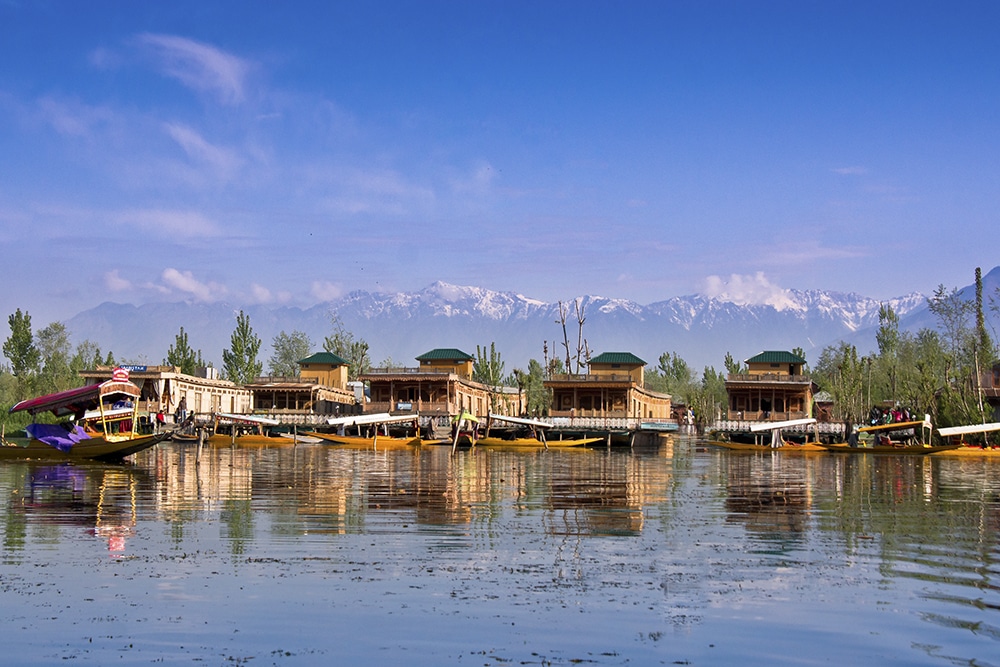
We stayed on a houseboat on Dal Lake, which was stunning, although empty! Our hosts were wonderful, warm people who we got to know quite well. They told us they didn’t really care who was in charge and just wanted peace, so tourism could resume and they could get on with their lives. They took us on long treks in the hills despite it being Ramadan and them not eating or drinking all day. One evening, one of the men was so thirsty when we returned to the boat that he leaned over the side to drink from the lake and fell into the freezing water.
What trip would you like to repeat?
I’d love to return to Nepal, ideally without a crippling stomach condition this time. I remember looking at the mountains there and thinking that if I died the next day, it almost didn’t matter because I’d seen something so incredible. Many years later, that image is still seared into my mind.
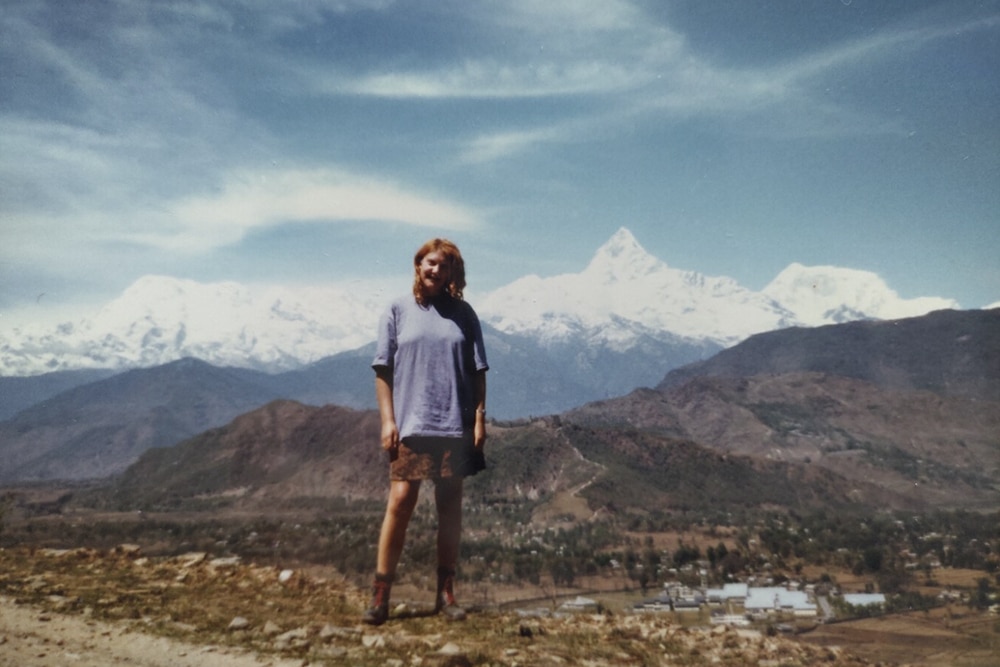
Do you still have a dream destination you haven’t seen?
I’ve been chased by a rhino in India (and we followed some dubious advice from locals here – run in a zig zag and climb a tree – hmm), but I have never been on a safari anywhere in Africa. I love seeing animals in the wild, so this is a dream, provided I could do it in a way which benefits the animals and the local community.
Are you a planner or see-how-we-goer?
I’ve done both. In the past when I had lots of time, I was happy to be casual about planning but it has resulted in a few close shaves and incidents of sleeping in less than ideal places (see below). Now I’m more of a flexible planner.
Hotel or hostel (or camping)?
We stayed in some shocking places on our big trip, partly due to our £50 a week inclusive budget. We accidentally stayed in a brothel in Kuala Lumpur, woke up in a hostel in Indonesia with a naked man in bed with us and slept outside without a tent whilst wild boar marauded around our campsite. So now I am rather partial to a nice bed in a room of my own, although it doesn’t need to be somewhere posh!
What has been your number one travel experience?
I do love an unexpected animal encounter. We went on a boat trip to an island off the coast of Malaysia and several monitor lizards around six feet long came out of the forest on to the beach and wanted our sandwiches. Although it was a small moment, it was so surprising and wonderful that I’ve never forgotten it.
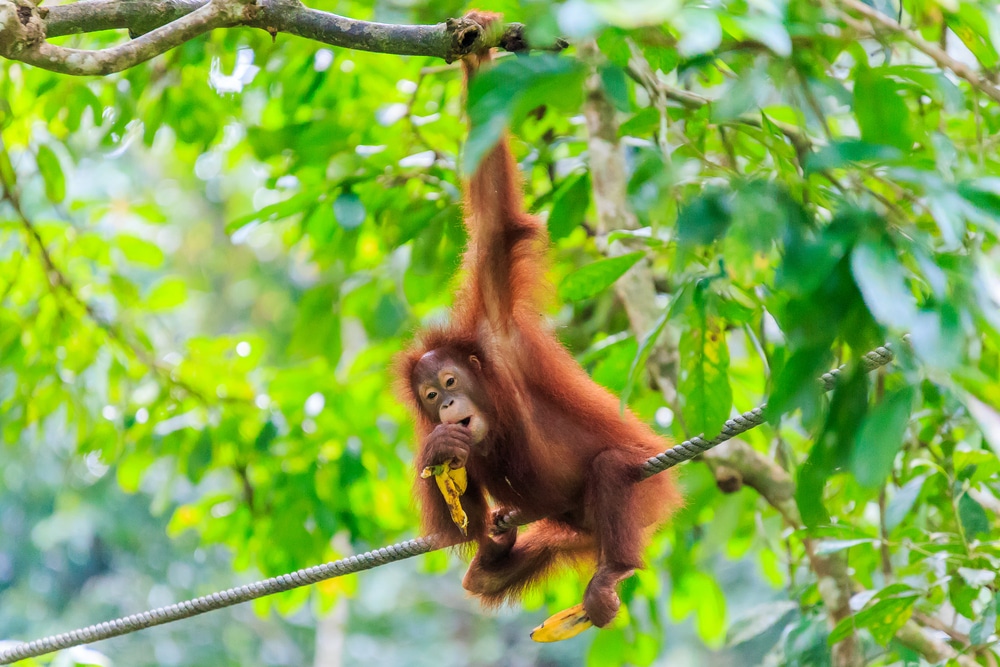
I also loved going to an orangutan rehabilitation centre in Sumatra. I can still picture an orangutan in the trees using a huge leaf as an umbrella. (Okay that was two experiences.)
Finally, why travel?
I think it’s in our genes to be nomadic and there’s an almost indescribable pleasure about being somewhere new and meeting people who think completely differently. The feelings of awe that somewhere like the Himalayas inspire in me sustain me through difficult times. It’s inevitable that we have to reduce flying due to climate change, so it’s not clear what the future holds but even if I travel more slowly and closer to home, I will travel!
Enjoyed this post? pin it for later…
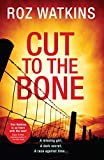
Intelligent, propulsive and incredibly atmospheric, Cut to the Bone is not only a riveting thriller but a thoughtful portrait of modern society that will make you rethink your worldview. Read the opening scene and follow Roz on Facebook and Twitter.

